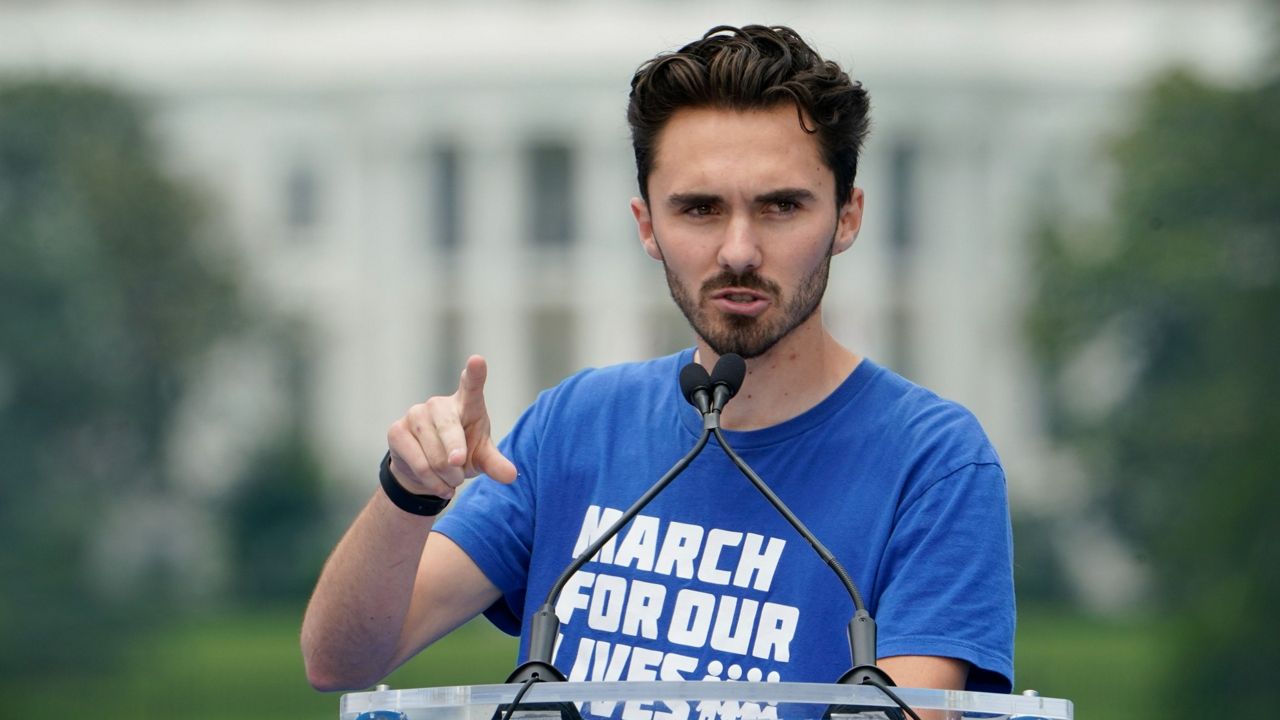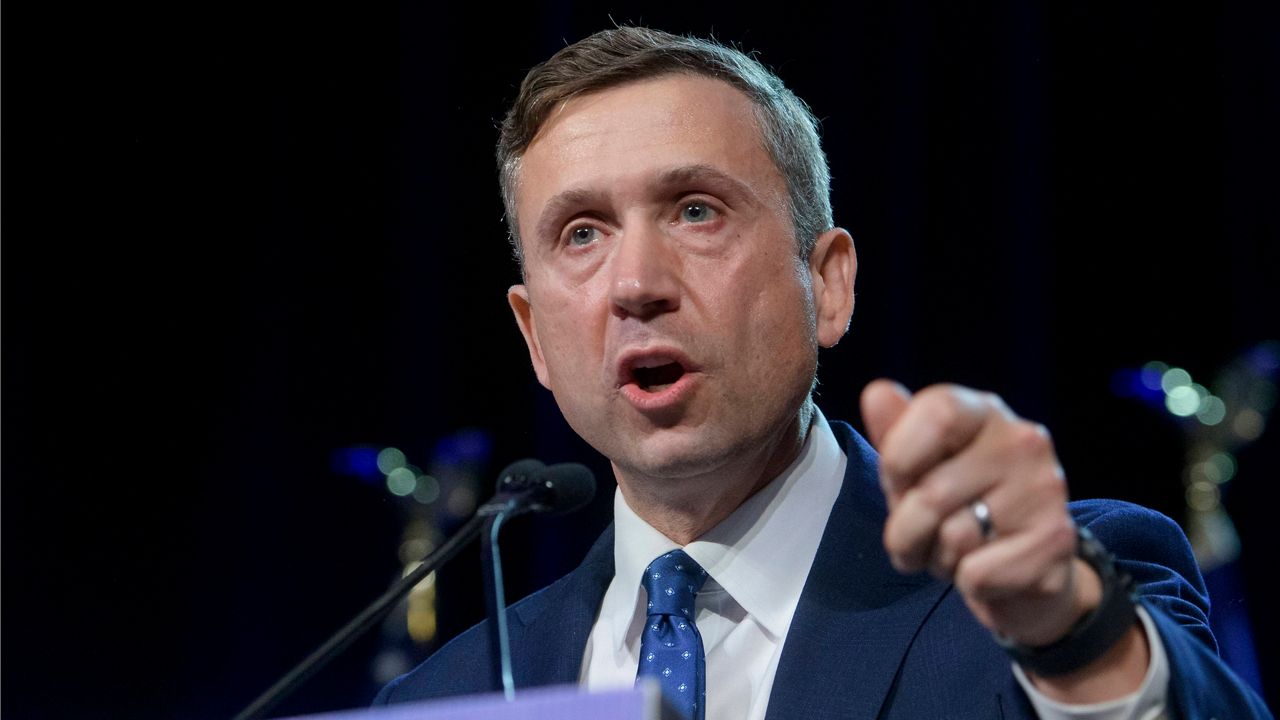Support for the legalization of marijuana in the United States is at a record high.
According to a Gallup poll from November 2022, 68% of Americans back legal cannabis — a 20-point increase from a decade prior and far above the 12% who supported it when the firm started polling about marijuana legalization in 1969.
On Thursday — April 20, the unofficial holiday celebrating marijuana use — lawmakers on both sides of the aisle took part in a summit on cannabis policy and called for reform.
“Congress has a lot of work to do to catch up with the rest of the country,” Senate Majority Leader Chuck Schumer, D-N.Y., told advocates at the National Cannabis Policy Summit Congressional Forum, later adding: “I promise to be in your corner and work like hell bringing federal cannabis policy into the 21st century.”
Schumer has been a major proponent on Capitol Hill for cannabis legalization; last year, the New York Democrat joined Sens. Ron Wyden, D-Ore., and Cory Booker, D-N.J., introduced the Cannabis Administration and Opportunity Act, a comprehensive measure that would, among other things, decriminalize and deschedule marijuana.
Schumer, in his remarks, acknowledged that a closely divided Senate, and a Republican-controlled House of Representatives, makes it harder to pass cannabis legislation, but he urged advocates to keep fighting.
“We will need you, as we always do, to reach out to members of both parties, in both chambers—especially Republican—so we can make progress on cannabis reform,” he implored.
Despite Schumer’s comments about GOP opposition to cannabis reform, Gallup’s poll showed that a majority of Republicans — 51% — support legalization of marijuana.
Republicans and Democrats alike attended Thursday’s summit with that same message.
“It’s time for Congress to move on cannabis reform,” Florida Rep. Brian Mast, a Republican and a co-chair of the Congressional Cannabis Caucus, told Spectrum News.
Joining Mast at Thursday’s summit was fellow Republican Rep. Nancy Mace of South Carolina, who introduced a measure in the previous Congress that would have removed cannabis as a Schedule I substance under the Controlled Substances Act.
“In South Carolina, statewide, cannabis is broadly supported by the vast majority of residents,” Mace told Spectrum News, adding: “When you see the tide changing to that level, especially in a very conservative bright red state like South Carolina, you know, it's past time to make a move on this issue.”
Despite this spate of support, recent cannabis reform bills have gone nowhere in Congress — a fact Mace lamented, citing the failure to pass a bill that would allow banks to do business with cannabis companies in legal states.
“It's hard to say at this point,” Mace said, when asked if she was optimistic this current Congress would pass federal cannabis legislation. “SAFE Banking should have been a very easy win.”
“We just turned a blind eye to the small businesses across the country,” she added. “And I thought Republicans were for small businesses, but by not acting on this issue, we’re hurting small businesses across the country, and that's wrong.”
But last week, lawmakers announced a bipartisan push on a bill known as the PREPARE Act, legislation that would develop a framework for legalization at the federal level.
The measure was reintroduced in the House last week by Ohio Rep. Dave Joyce, a Republican, and Democratic Leader Hakeem Jeffries, D-N.Y. It was previously introduced by Colorado Sen. John Hickenlooper, a Democrat.
In an interview with Spectrum News, Hickenlooper called the bill a “blueprint” for federal legalization.
“[The bill] brings together all the people — people who are opposed [to legalization], people who are pro, district attorneys, scientists, public safety people, everybody,” Hickenlooper said, adding that the measure demonstrates “the real facts about cannabis.”
President Joe Biden campaigned for the White House in 2020 on decriminalizing marijuana. In October of last year, he took the extraordinary step of pardoning all prior offenses of federal offenses of simple possession of marijuana, while also ordering the Secretary of Health and Human Services and Attorney General to review "expeditiously" how marijuana is scheduled under federal law.
“Too many lives have been upended by our failed approach to marijuana,” Biden said in a video message in October of last year. “It’s time that we right these wrongs.”
Despite that action, marijuana is still illegal at the federal level — a disappointment to some cannabis advocates.
“We’ve been optimistic,” said Toi Hutchinson, CEO of the Marijuana Policy Project. “Yet still there’s a lot of in the advocacy community that really have been disappointed.”
In a statement to Spectrum News, a spokesperson for the White House reiterated President Biden’s commitment to cannabis reform, touting that his actions last year “amount to the biggest federal reform to our nation’s approach to marijuana to date.”
“Not only did the President issue a pardon that could transform thousands of lives, he also called on governors to follow his lead and issue similar pardons for state offenses,” the Biden administration official said.
Regarding the PREPARE Act, the official pointed to Biden’s support of legalization of medical marijuana “where appropriate consistent with medical and scientific evidence,” and cited the importance of reviewing how cannabis is scheduled.
“Rescheduling marijuana would ease burdensome restrictions that have prevented basic research on marijuana and inhibited the development of medical treatments,” the official said, adding that the president “is taking steps in that direction by executive action, and he would like to see Congress pass a bill making that permanent whenever it can.”









